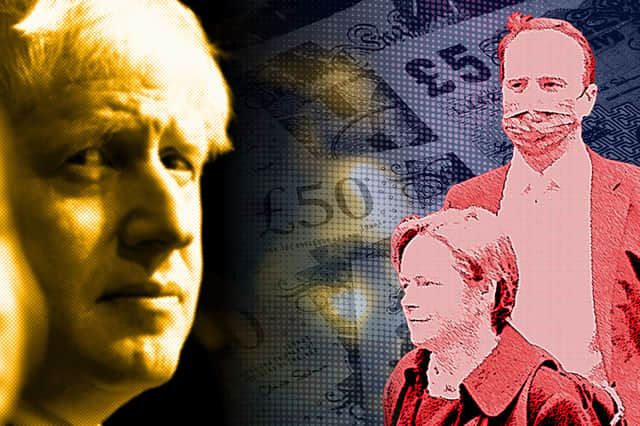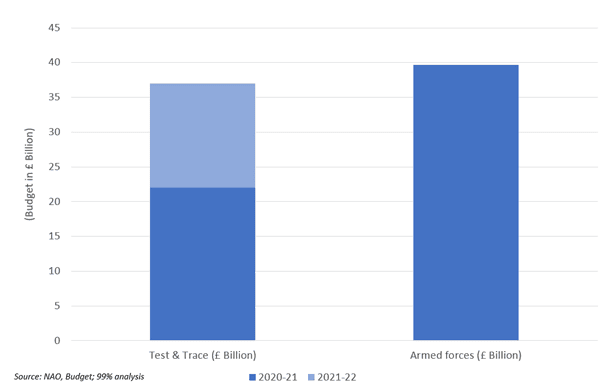The plunder state: how we’re seeing a new kind of government for the UK under Boris Johnson
This article contains affiliate links. We may earn a small commission on items purchased through this article, but that does not affect our editorial judgement.


In this series of articles for NationalWorld I will look at the actions and rhetoric of the Johnson government to show how it is different from any previous government we have seen in the UK.
In the three pieces, I will look at how:
Malice in Plunderland, Part 1: From Big State/Small State to Plunder State
In British politics, the Left is traditionally associated with ‘big state’ policies and Right with ‘small state’ policies.
Advertisement
Hide AdAdvertisement
Hide AdRecently, several commentators have suggested that Prime Minister Boris Johnson is pioneering a new kind of ‘big state, one-nation Conservatism’ – in effect, stealing Labour’s clothes.
For example, from a Financial Times article headlined ‘Johnson’s £12bn tax gamble: big-state Conservatism or expedient politics?’:
“The move leaves Britain on course to record the highest tax burden — 35.5% of national income — since 1950, when the country’s most radical Labour government under Clement Attlee was nationalising swaths of the economy and grappling with the aftermath of the second world war.
“Many Conservatives still think of themselves as small-state, low-tax politicians walking in the hallowed steps of former leader Margaret Thatcher. But the reality is that, after 11 years of Tory government, a graduate in Britain, repaying student loans and paying the lowest rate of income tax, faces the loss of 50% of any increase in their salary above £27,288, paid by an employer.”
And Sky News:
Advertisement
Hide AdAdvertisement
Hide Ad“The prime minister has broken two manifesto promises in an afternoon as he increases National Insurance to raise money for social care and pauses the triple lock on pensions.”
And the Guardian:
“Hence the decision to steal a few of Labour’s clothes: a higher minimum wage; extra money for the NHS; modest increases in infrastructure spending.”
So is this idea – that Johnson is stealing the centre ground from Labour – a plausible reading of the Johnson government, or is something else happening?
Traditionally, the Labour Party holds views which could be described as ‘big state.’ Most Labour MPs believe that there are important functions which can be performed better by the state than by the private sector, and that, therefore, they should be undertaken by the state. They believe that taxation should be sufficient to enable these activities to be carried out properly and that it should be progressive taxation, in which the better-off pay higher rates of tax.
Advertisement
Hide AdAdvertisement
Hide AdThe Conservative party, by contrast, has seen itself as the party of low taxation. Many Conservative MPs believe that state-run activities are inherently less efficient than private sector activities and, therefore, should be minimised. They believe that economic progress is driven by business rather than by the state and they see taxation as stifling business and therefore progress itself – and so they fall into the ‘small state’ camp.
But although the Johnson government has been reluctant to spend even relatively small amounts on some issues – such as school meals for the poorest children during holidays, pay rises for nurses, or benefits for the poorest – they did not hesitate to spend money in large quantities on a new ’Royal’ yacht which the Royal family does not want (£250 million), on PPE (well over £1 billion), on the so-called “NHS test and trace” (£37 billion) – when this spending was directed into the corporate sector, via a special ‘VIP lane’ which crowded out experienced suppliers in favour of donors and contacts of ministers. As a result, much of the money spent was (from the taxpayers’ perspective) wasted.


Indeed, the government’s attitude to NHS spending – or indeed to any spending which can in some loose way be linked to the NHS – seems to be: “tax-funded spending is fine, as long as we can direct it to whom we want and as long as the tax burden does not fall on the wealthiest.”
The new Health and Care Bill, for example, will give ministers extraordinary powers to spend taxpayers’ money without oversight and to reshape the NHS at will. My analysis calculates the profit opportunity from moving the NHS towards the US system could be as high as $28 billion per annum.
Advertisement
Hide AdAdvertisement
Hide AdOversimplifying to make the point, the traditional Labour Party sees the NHS as an unalloyed benefit; the traditional Conservative party sees it as a large expense; and the Johnson government sees it as a gigantic profit opportunity. The same is true of schools and several other areas of public expenditure.
The beneficiaries of a plunder state would be a very small number of extremely rich people – rather like the Russian oligarchs. Most people would be seriously impoverished by such a change.
While the Johnson government may be stealing Labour’s rhetoric, it is not stealing its policies. An undemocratic party set on building a plunder state is something so alien to the UK that it is hard for commentators and voters to accept that it may be what is happening. Therefore, there is little commentary and little action to prevent it.
In the next instalment of Malice in Plunderland, Mark E Thomas will look at the Government’s rhetoric and actions on levelling up.
Advertisement
Hide AdAdvertisement
Hide AdMark E Thomas is the founder of 99% and author of 99%: Mass Impoverishment and How We Can End It. He has spent most of his career in business; for many years he ran the Strategy practice at PA Consulting Group. He is a Visiting Professor at IE Business School and has a degree in Mathematics from Cambridge University.
Comment Guidelines
National World encourages reader discussion on our stories. User feedback, insights and back-and-forth exchanges add a rich layer of context to reporting. Please review our Community Guidelines before commenting.
